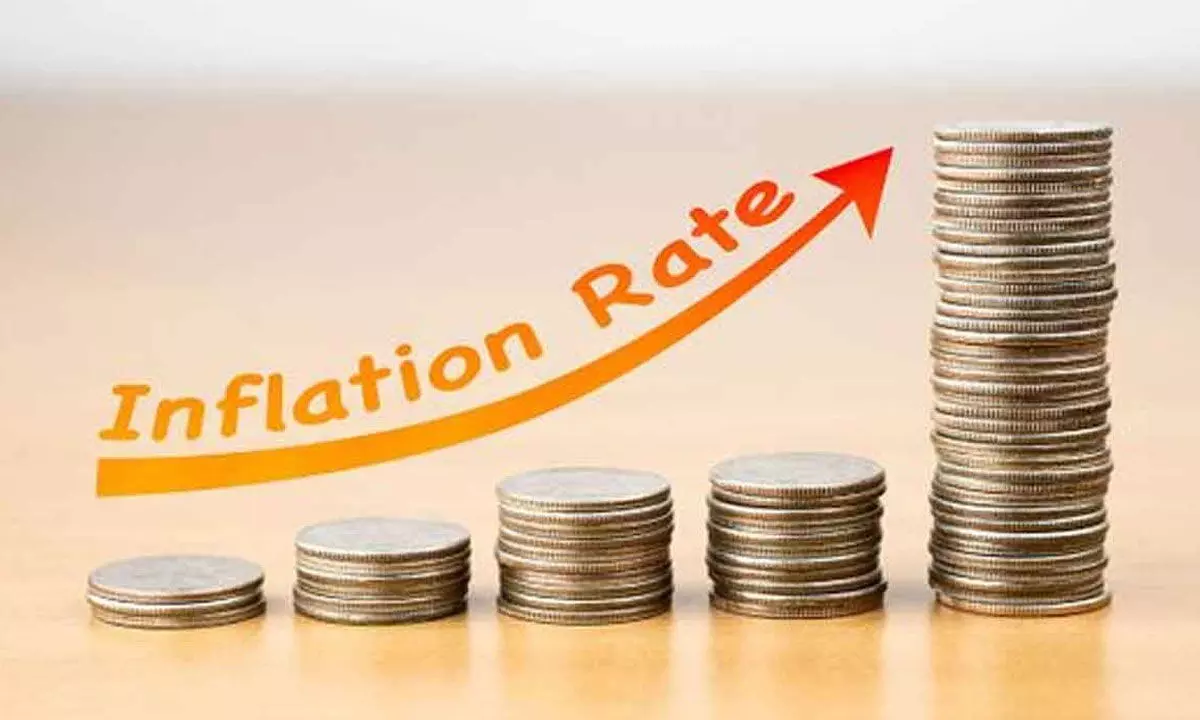How to protect your money from inflation
The vagaries of market can’t be avoided by any investor, but one could wither this situation only through a proper asset diversification
image for illustrative purpose

Certainly, inflation pinches all of us - directly or indirectly. The recent RBI rate hike has given a slight respite to the savers who have been experiencing very low real returns. Savers were feeling bitter as the rates were contracted in the last two years due to the pandemic, particularly the small savers and the senior citizens. This segment of the people can't take too much risk and so were affected by the low return on capital.
The central bank has resisted an overt increase in the interest rates till now to give a fillip to growth and allow the nascent revival to continue. But, as the inflation numbers crept beyond the comfort zone and as the developed world, especially the US Fed began to tighten the conditions, RBI was forced to act. While this has brought cheer to the savers, it impacts the borrowers as the cost of capital shoots up.
The near coordinated rate hikes by the central banks have rattled asset prices of stocks, bonds, cyptos and even gold. Now investment options have narrowed to counter this rate hike. Though this is not a permanent situation, in the shorter term would turn volatile for investors. Equity investments however would fructify if invested in a staggered basis so that price could be averaged upon with a medium to long-term horizon. Equities have proven to the best asset class to generate higher real returns in the long run.
Debt excepting floating rate and overnight seem toxic for investors as bond prices are inversely impacted by the change in interest rates. Though, there're pockets of opportunity within the yield curve, the short-term volatility puts off investors to participate as it doesn't provide an attractive risk to reward in the near term. Again here, a medium to long-term approach of over three years could turn profitable for investors and those already exposed to these, should continue to stick to the allocations.
As per Warren Buffet, the first rule of investing is not to lose money. This is because it requires a higher return to just to recover the original level. For instance, if an investment falls by 10 per cent then it requires more than 10 per cent to just reach the original level. An investment of Rs 100 would reach Rs 90 when corrected by 10 per cent. If it generates 10 per cent from there, then it would only reach to Rs 99.
Most of us look to make gains and hence look for returns from any investment. It's equally important for us to not lose as it requires a higher run rate to recover from the lows. Markets (of any asset classe) are influenced by various factors not just directly related to that asset as there could be multiple cascading steps that could affect an asset and so it's price. How could one then counter these gyrations?
The vagaries of market can't be avoided by any investor, but one could wither this situation only through a proper asset allocation and portfolio creation. Portfolios are created so that a proper diversification is achieved. Diversification ensures that a part of the investment is immune to a particular situation or only a part of the investment is affected due to the changes in the investing environment.
Diversification allows for the investment to avoid those extreme spikes and troughs making the standard deviation lower to the mean. That helps the investor to have a pleasant investing experience while generating better reward to risk. Diversification is best achieved through asset allocation i.e., allocating various asset classes in proportion to one's risk appetite and timelines. So, it becomes important to define the objective of the investment and the timelines to achieve these goals. Overall, inflation like many other risks is inherent and a robust portfolio would help counter its effect.
(The author is a co-founder of 'Wealocity,' a wealth management firm and could be reached at [email protected])

